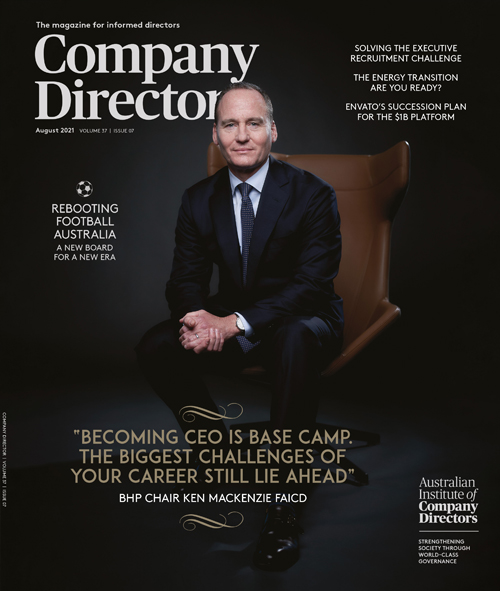As the pandemic moves through its second year, business as usual doesn’t cut it any more. Performance coach Ben Crowe says leaders need to look within for connection and purpose.
World tennis number one and 2021 Wimbledon Women’s Singles champion Ash Barty knows that when it comes to performance, skill, training and fitness are vital, but so is her mental game. Aside from tennis coach Craig Tyzzer, Team Barty also employs a mindset coach, Ben Crowe, who has been credited with helping the Ipswich-born champion develop her winning love for the game.
Crowe, a director of Mojo Crowe, and a former Australian and regional sports marketing director with Nike, works with top athletes and executives on mindsets that balance achievement with fulfilment. He worked alongside Richmond AFL president Peggy O’Neal AO FAICD in 2016–17 and his mentoring of captain Trent Cotchin is acknowledged as the catalyst that helped the Tigers break their 37-year premiership drought.
Watching the Wimbledon action from Melbourne instead of courtside this year, Crowe says it has been about separating who Barty is from what she does, and her sense of self-worth from whether she wins or loses. In a results- obsessed world. “Sometimes, it’s important to let go of all that noise,” says Crowe. “It is so important to identify our intrinsic motivations, not our external motivations.”
Eighteen months in, the global pandemic is severely testing our resilience and relationships. Crowe observes that circumstances are presenting a particular challenge for alpha personalities — used to being in control and driven by financial goals, KPIs and recognition.
“A generation of 50-plus alpha personalities are asking what happened? They’ve achieved, but they aren’t fulfilled. I work with a lot of CEOs and I asked them at the start of the pandemic, let’s assume there’s a message, what do you reckon it is? The overwhelming response was that it was to stop doing and start being, to do less and to be more — more connected to family, to stop saying how busy I am.”
Crowe’s approach focuses on authenticity, vulnerability, connection and storytelling. He emphasises that two things are vital for our psychology — recognising and accepting the things we can’t control, and accepting ourselves and separating our self-worth from what we do. “Performance becomes a matter of focusing attention on the things we can control and the best version of us, and not getting distracted by the things we can’t control,” he says. “It’s fine to have your to-do list, but when you wake up in the morning, what’s on your to-be list?”
Kind, caring and playful — that’s a mindset that obviously works for a Wimbledon champ.
Latest news
Already a member?
Login to view this content



